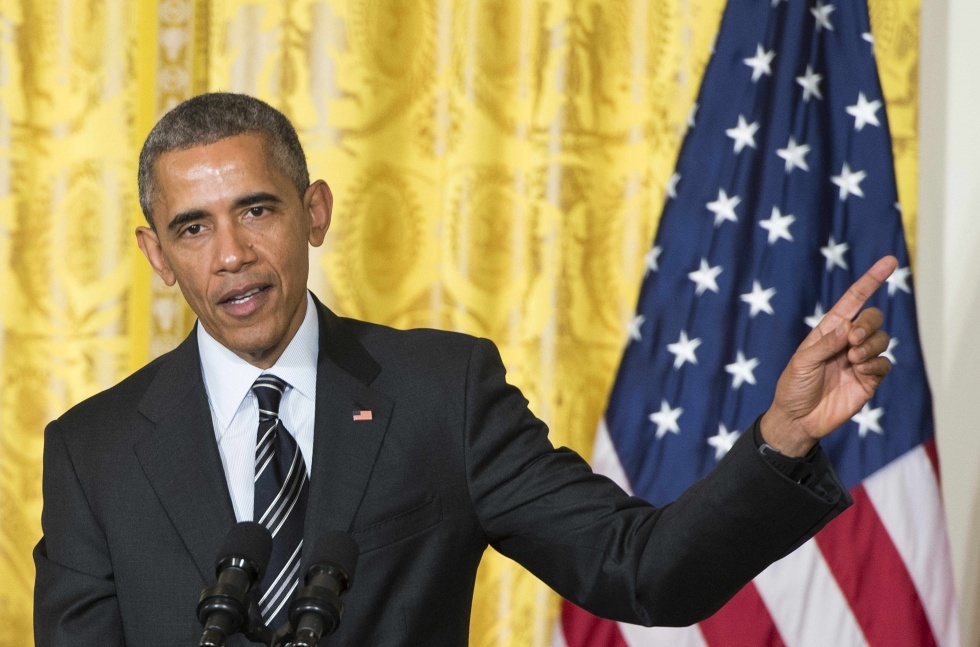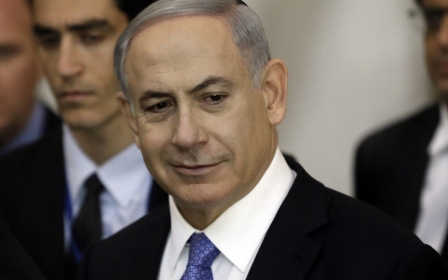Obama insists disagreement with Netanyahu is 'business-like'

US President Barack Obama insisted on Tuesday that his disagreement with Israel's Prime Minister Benjamin Netanyahu represents a substantial policy difference and not a personal vendetta.
As the Israeli premier works to build a new coalition government at home, he faces one of the worst confrontations in his stormy relationship with the White House.
He has tried to play down declarations he made during his recent victorious election campaign in which he ruled out the creation of a Palestinian state and stigmatized Arab voters.
But Obama has not let him off the hook and after White House leaks accused Israel of spying on US-Iran nuclear talks, he insisted the allies have more tough talking ahead.
"The issue is a very clear, substantive challenge," Obama told reporters at a joint White House news conference with Afghanistan's President Ashraf Ghani.
"We believe that two states is the best path forward for Israel's security, for Palestinian aspirations and for regional stability.
"That's our view and that continues to be our view. And Prime Minister Netanyahu has a different approach."
Obama denied it was a matter of personal animosity between himself and Netanyahu, describing their notoriously cold relations as "business like".
But he said the United States still backs the creation of a Palestinian state alongside Israel, and that he would take the issue up with Netanyahu's government once it is formed.
"This is a matter of figuring out how we get through a knotty policy difference that has great consequences for both countries and the region," he said.
Since Netanyahu's party won Israel's 17 March election, not a day has passed without a US comment - official or otherwise - on the implications of his hardline rhetoric.
During campaigning he said he would block a Palestinian state and on polling day raised the specter of an Israeli Arab rush to the polls to drum up right-wing votes.
Although Netanyahu has since tried to back-track - denying he reneged on the idea of a two-state solution and apologizing for giving offense - the damage has been done.
In addition to Obama's stern reminder, US officials have been feeding criticism ofIsrael's tactics to the American media.
In unusually tough language that underscores the fracture in relations between Washington and Israel, White House Chief of Staff Denis McDonough on Monday said "an occupation that has lasted for almost 50 years must end".
McDonough criticised Netanyahu's pre-election pledge to block the creation of a Palestinian state - the supposed end goal of decades of fruitless peace talks - and he questioned Netanyahu's efforts to undo the damage.
"We cannot simply pretend that those comments were never made, or that they don't raise questions about the Prime Minister's commitment to achieving peace through direct negotiations," he said.
"The Palestinian people must have the right to live in and govern themselves in their own sovereign state," he added.
McDonough is one of President Barack Obama's closest advisors, and his speech to the liberal pro-Israel lobby group J Street was followed closely in Washington.
Netanyahu's pledge deepened a long-running disagreement with Obama but his top aide said, the row was not based on "personal pique".
"America's commitment to a two-state solution is fundamental to US foreign policy," McDonough said. "It's been the goal of both Republican and Democratic presidents, and it remains our goal today."
Middle East Eye propose une couverture et une analyse indépendantes et incomparables du Moyen-Orient, de l’Afrique du Nord et d’autres régions du monde. Pour en savoir plus sur la reprise de ce contenu et les frais qui s’appliquent, veuillez remplir ce formulaire [en anglais]. Pour en savoir plus sur MEE, cliquez ici [en anglais].




